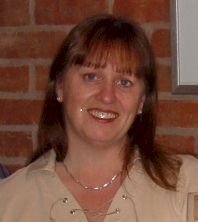Interview with IrishGenealogyToolkit.....
 |
Claire Santry wanted to pass on her 15 years experience in tracing her ancestors. IrishGenealogyToolkit.com has grown into one of the most informative and very popular websites on the subject. We caught up with Claire recently to hear helpful hints on how you should go about this if you are just starting out. |
Hello Claire, for readers not familiar with Irish Genealogy Toolkit can you tell us a bit about yourself, the website and your inspiration for creating it ?
It’s important your visitors understand that I’m not a professional genealogist. I’m strictly amateur, but having been researching my ancestors for about 15 years, I’ve plenty of first-hand experience of the difficulties faced by Irish family historians – especially beginners.
And that’s why I started the website: to pass on some of that experience and, in the process, save others from some of the time-consuming and often expensive mistakes I’ve made.
Since Irish Genealogy Toolkit started it has grown to be a very popular website. What do you think are the most common things people want to find out about their ancestry?
Often there’s a family story that they want to confirm or reject and it’s surprising how often even the most basic genealogical investigation can discover the answer. Most people just want the Who, When and Where ie the names, dates and places of their origins.
Of these, I’d say the most anxiously sought is the Where, especially by the descendents of emigrants. It’s not enough to know that ancestors came from ‘Ireland’. They want to know exactly where, and then they want to go there and see the hills, the trees, the valley, the strand, the streets that their ancestors looked at.
This can be a very strong motivator. For some, it can also be a long, hard slog to uncover the detail.
What are your own favourite parts of Irish Genealogy?
Although I love the documentary research and enjoy time spent in archives, I’m a great fan of graveyards. For me, there’s a great thrill to following a paper trail to a new graveyard and hearing the creak of the iron door as you step inside. Mooching about the stones, trying to decipher the inscriptions, is a great way to research. And fresh air to boot!
You traced your own maternal line back to 1723 - how far back in time is it good to achieve or normally realistic to go?
As a generalisation, the paper trail runs out in the early 1800s unless your family was reasonably prosperous. The relative popularity of a surname can also be a factor. I’ve managed to get beyond that only because the East Coast tends to have earlier records than the west, and my maternal line came from Wicklow Town, where the local records go back further than most.
But there are many exceptions and it largely depends on the religion of the family and whether the relevant records have survived.
For people starting out where would you point them to in the Irish Genealogy toolkit website first of all?
There’s a Get Started page, which aims to get beginners ready to start researching in earnest. The first question beginners ask is usually ‘which records should I start with’. The question ought to be "what do I already know and what can other members of the family tell me before I start searching for documentary records?"
Your website covers all of Ireland -are there any specifics in relation to the Northern parts of Ireland for people from here or abroad?
Not really, except that the priniciple repository is the Public Records Office of Northern Ireland, known as PRONI, in Belfast, rather than the National Archives of Ireland in Dublin. Historic records for Northern Ireland tend to be split across the two institutions eg the 1901 and 1911censuses for Northern Ireland are on the NAI’s website (http://www.genealogy.nationalarchives.ie/).
Will calendars and valuation revision books are on the PRONI website (http://www.proni.gov.uk/index/family_history.htm). It can certainly be a bit confusing and it’s worth getting very well acquainted with both sites!
Anything else you think readers would benefit from Claire before you go?
I would urge all beginner family historians (and old-hands, for that matter) to take a deep breath whenever they arrive at a new database and check that it covers the parish or geographical area and the dates that they are researching before they part with any money.
I know that I spent a small fortune searching online databases for Cork records, only to discover much later that none of them held records for my paternal parish. Sometimes databases don’t make details such as these sufficiently clear.
We would like to thank Claire for this valuable information in guiding people to the right places to start your search thus saving time and money in the process. Please visit irishgenealogytoolkit for more information.
Thank you, Claire.
Home to Uniquely northern Ireland


